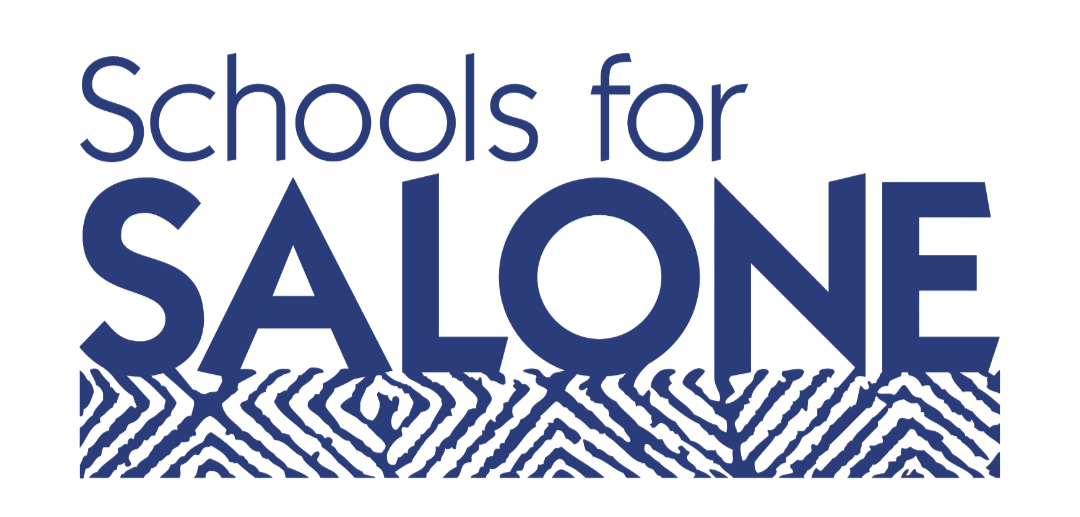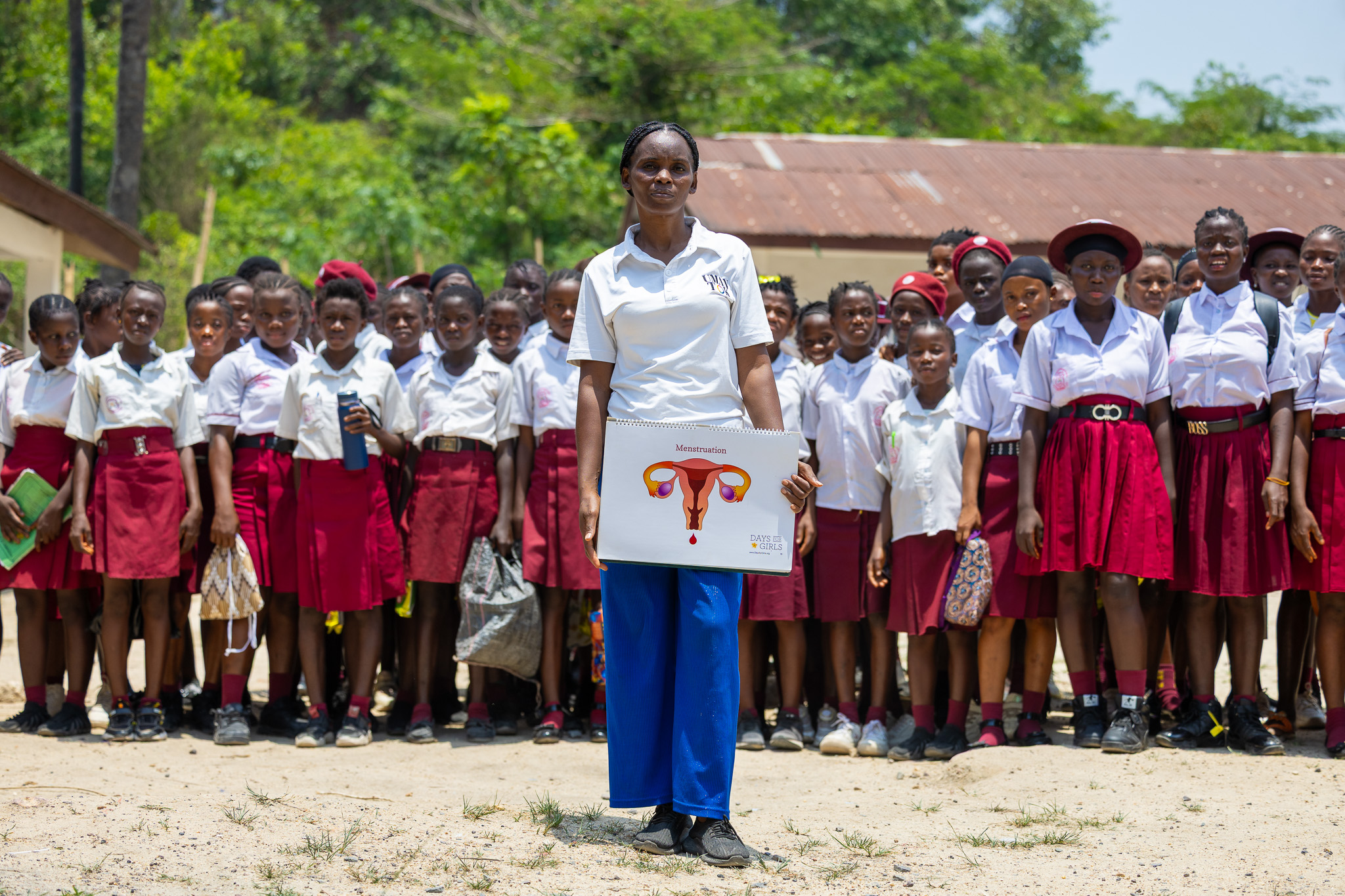
To mark World Menstrual Hygiene Day, Schools for Salone (SfS) partnered with Uman Tok hosted an insightful webinar that tackled one of Sierra Leone’s most pressing issues: menstrual health and hygiene.
Bringing together voices from Sierra Leone and the U.S., the webinar explored the widespread silence, stigma, and systemic challenges surrounding menstruation which affect girls and women across the country everyday.
“In Sierra Leone, only 14% of schools have facilities for girls to safely manage their periods,” said Diana Nelson, guest speaker and Global Advocacy Director for Days for Girls International.
She also noted that 500 million people globally lack access to menstrual products or even a basic understanding of what menstruation is. Uman Tok’s work, which blends the distribution of reusable pads with menstrual and reproductive health education, was highlighted as an important step in bridging the gap.
But the discussion made it clear; creating real change will require open dialogue, more support, and a collective effort to make menstrual health a priority.
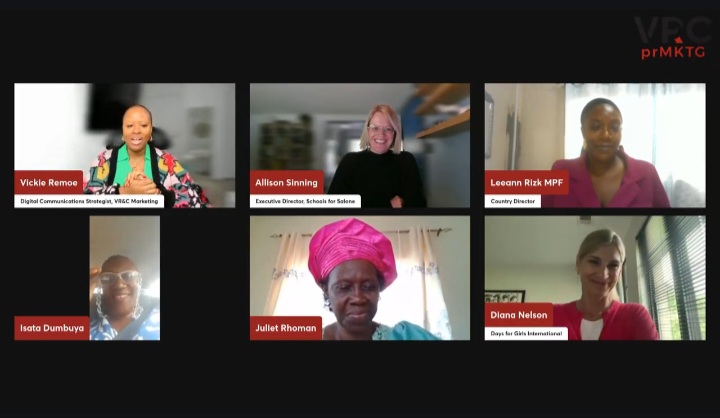
Vickie Remoe (Top Left), Allison Sinning (Top Middle), Leeann MaHota-Rizk (Top Right), Isata Dumbuya (Bottom Left), Juliet Rhoman (Bottom Middle) and Diana Nelson (Bottom Right) during webinar
You Can’t Protect What You Don’t Understand
One of the most pressing issues raised during the webinar was the culture of silence surrounding menstruation in Sierra Leonean homes and communities.
Despite being a natural part of life, menstruation remains a taboo topic, shaped by deeply rooted religious and cultural beliefs. Conversations about sexual and reproductive health are often seen as off-limits leaving girls and women to navigate this important part of their lives in isolation.
Isata Dumbuya, guest speaker and Director for Maternal and Reproductive Health at Partners in Health SL, spoke about the consequences of this silence. She shared troubling accounts from her work with adolescents.
“We have had girls come to our adolescence clinic who have started their periods but believed it happened because they fell down. So the girls and parents are not ready for this experience as they do not train the girls to be prepared by having these conversations with them,” Dumbuya said.
The lack of preparation can leave young girls confused, scared, and ashamed of a process they don’t fully understand.
Dumbuya noted that some parents wait for visible signs, such as breast development, before talking to their daughters about menstruation, that is, if they ever would. “But a child can start her period without having breasts and you still haven’t spoken to her about it by then,” she added.
Without open dialogue and education, many girls are left vulnerable, unaware of their bodies, unprepared for their periods, and unsupported in critical moments of their development.
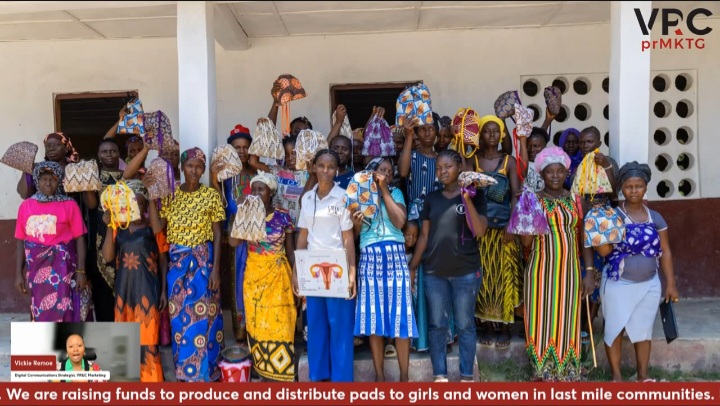
Some women holding the period kit produced and distributed by Uman Tok
Girls Deserve to Know Their Bodies
Juliet Rhoman, Executive Director of Uman Tok, reinforced the urgency of breaking the silence around menstruation. She shared a troubling case involving a young girl whose mother dismissed her first period as untrue because she was 9 years old.
Left without support or supplies, the child resorted to tearing pages from her school notebook to manage her bleeding.
“When I spoke to the mother, she apologized and admitted she didn’t believe her daughter. She also confessed that she herself uses rags during her period,” Rhoman said. The story highlighted how widespread period poverty and misinformation are often passed from one generation to the next.
Leeann MaHota-Rizk, Guest speaker and Country Director of Maman-Pikin Foundation, emphasizes the need for cultural sensitivity when addressing reproductive health issues in communities.
“I think people are really protective of their cultural space. People might come in from the outside and say a practice is wrong, but it is important to understand why people believe it’s appropriate in the first place.”
According to MaHota-Rizk, meaningful change comes not just from speaking up but from knowing how to speak, when to speak, and whom to speak to.
“The cultural piece is very important,” MaHota-Rizk added.
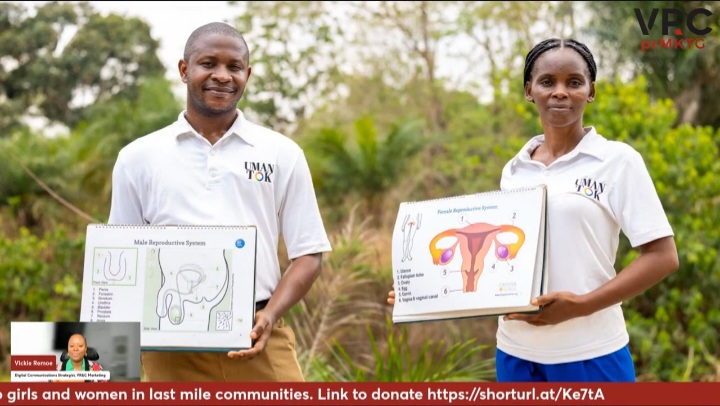
A scene from a video played during the webinar showing some teaching tools used by Uman Tok during their sexual and reproductive health workshops
More than a Webinar; This is a Call to Action
As we reflect on the lessons learnt, Schools for Salone is calling on the public to support Uman Tok.
Through its partnership with Uman Tok, they continue to deliver reusable menstrual hygiene kits and provide life-saving sexual and reproductive health education for both boys and girls in some of the country’s most remote areas. Since 2020, the program has reached thousands of students, but it needs your support.
With the rainy season fast approaching, transportation to these communities will soon become difficult or impossible. At the same time,the end of the school year marks a critical period when girls are at an increased risk of exploitation and pregnancy.
That’s why Schools for Salone is seeking to raise $15,000 to fund one final push to deliver resources, education, and support before schools close and rains begin.
To help make Sierra Leone #PeriodFriendly, please donate today. Your donation will change the lives of many young girls in last-mile communities in Sierra Leone.
Click HERE to make your donation.
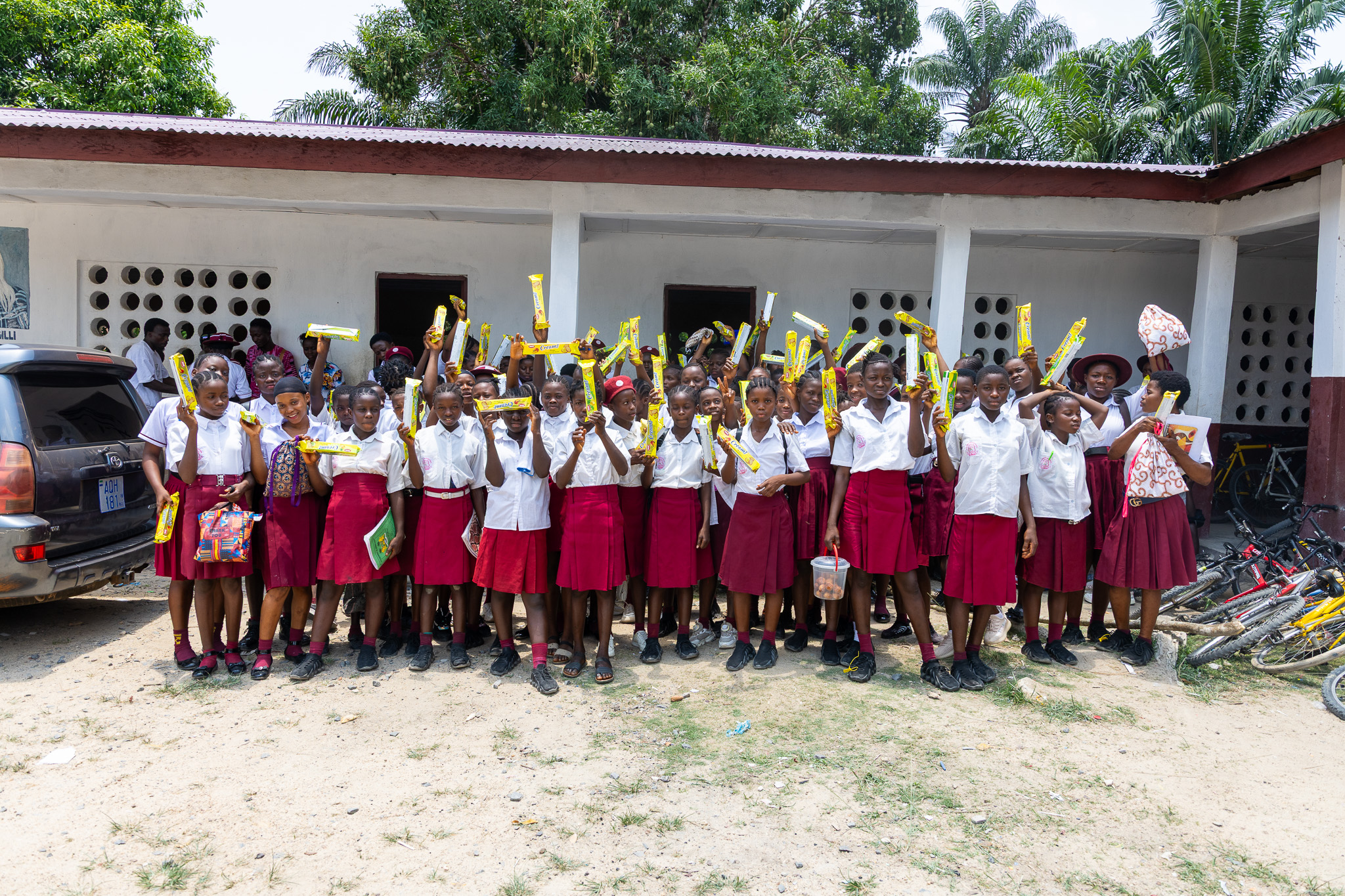
Some girls from an Uman Tok workshop in Makali with their period kits
